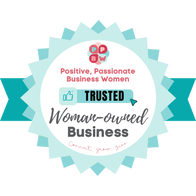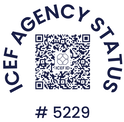|
Hello everyone,
Today, I would like to talk about bank system in Australia. Australia has a range of choices when it comes to managing your money, from banks that cover the whole to country to local credit unions and building societies in Australia. So, do your research to get the best deal. To open a bank account you may need:
Most bank branches are open from Monday to Friday, 9:00 am to 4:00 pm (except public holidays). Some branches have extended trading hours during the week and may be open Saturdays (check with your individual bank). Automatic Teller Machines (ATMs) remain open 24 hours a day. ATMs can be found all over Australia. It is generally free to withdraw money from an ATM that is associated with your financial provider. If you want to use another provider's ATM, there will be usually a fee. The ATM will advise you of the fee at the point of withdrawal. Most ATMs recognise international cards, so you will be able to use your credit or debit card from your home country. Just remember that there are fees associated with withdrawing money from your home account including transaction fees and the currency exchange rate. These vary by provider so check with your home financial provider before you arrive in Australia. If you need to resolve complaints concerning your financial situation, you can contact The Australian Banking and Financial Services Ombudsman. Free interpreter services are available. For more information on the banking ombudsman visit: www.fos.org.au
1 Comment
G’day students,
Today I will give you advice about how to find the right accommodation. Look for accommodation that suits your needs and budget. Generally, the price you pay for accommodation will determine its quality.
1. RENTING
In most cases, you will need to pay for a security deposit & bond. The bond is usually set at 4 weeks rent. A bond & "security deposit" is an amount of money that is supposed to guarantee that the tenant will care for the property. If the tenant does not care for the property or clean it before return, the tenant could loose some money from the security deposit after moving out. When you inspect the property, write done a list of furniture and fittings in your room and then agree on the condition of the property with the person who will rent the place for you. Make sure that you both have the same signed copy. One of my tip to my students is that please do not handing over money to anyone before checking the property out and signing a written agreement. You can find share accommodation at: www.realeastate.com.au www.domain.com.au www.gumtree.com.au 2. Homestay Students can stay with a family to experience the Australian lifestyle and to practise speaking English day-to-day. Meals can be provided for an extra payment during weekdays / weekends. Many international students find that the best accommodation on arrival in Australia is a 4 week stay with homestay family. During this period students can look for more permanent accommodation. Homestay is a great way to get to know about daily Australian life. If you are younger student or coming coming to Australia for the first time, it would be a good accommodation option for you. 3. Short-term accommodation (backpackers & hostels) Most of the backpackers & hostels are located in the heart of the Australian cities or within short distance to the Australian beaches. There is a vast number of backpackers and price vary on room-type, location, facilities, low or high season, bathroom facitities, etc. In general, the number of beds (almost invariably bunk beds) varies. You may end up in 4, 6, 8 or even 12 bed dorms. The fewer beds in the room, the more dollars you'll spend. Most hostels also offer double or twin share rooms, sometimes even with private bathroom facilities. You can save on accommodation amount if you join for example YHA which offers discounted prices for their members. When you want to book a backpacker online, always compare booking fees and how is the backpacker rated by others. If you enjoy to be surrounded by people, like fun and party, don’t mind sharing facilities so the backpacker hostel accommodation could be a right option for you. 4. Living on campus If you decide to live on campus, you can save a great amount on time and travelling expenses. Most of the Australian universities offer comfortable and furnished-style living. There is usually one price for furniture, utilities, internet and laundry. However prices can vary on room style, if cleaning and meals are included. It can be much safer to live on campus due to security presence on the campuses. There is a plenty opportunities to meet new people and develop lasting friendships. Take advantage of communal dining, community events, barbecues, social nights, study groups and student organizations. Hello everybody,
I receive lots of emails from international students asking me what to bring and when it is the best time to arrive to Australia. From my experience, I suggest to arrive at least 1 week before your course starts. It will provide you enough time for settling-in, adjusting to the climate and overcoming jet-lag. Have a look below at the checklist which will help you to plan your departure:
Customs and Boarder Protection Students are often suprised by how strict Australian Customs Services and Quarantine can be. If you are in doubt about whether your goods are prohibited or not, declare it anyway on the Incoming Passenger Card which you will receive on the plane. This is a legal document. You must tick YES if you are carrying any food, plant material including wooden souvenirs, or animal products. When you pack your backpack, make sure that you don’t bring fresh fruit and vegetables, meat, poultry, pork, eggs, nuts, dairy good and seeds, as they will not be allowed in Australia. Should you have any inquiries & questions, please feel free to contact me. Thank you Best regards, Pavla Hello everyone!
Today I would like to talk about how to write a good resume. A good resume can be the difference between an interview and being ignored. I always advice to my clients to start preparing resume before arrival to Australia. By preparing your resume from home, you will save yourself from stress and you will be ready to apply for a job as soon as you arrive to Australia. Our Study Online Australia team will provide to all of our clients free assistance with writing resumes. Please see below a simple overview how to ensure your resume will promote you well. What to do
Should you have any inquiries, please do not hesitate to contact me Best regards, Pavla Study Online Australia Head of Marketing Study Online Australia www.studyonlineaustralia.com.au +61 410 458 847 Twitter: @studyonlineaust Facebook:facebook.com/studyonlineaustralia Skype name: studyonlineaustralia |
AuthorPavla, The Director Archives
August 2022
Categories |
WE'RE INDUSTRY RECOGNISED
Study Online Australia Pty Ltd
Skype Name: studyonlineaustralia ; Contact Number: +61 410 458 847
© Copyright 2023
All rights reserved
PO BOX 5190, Greystanes, NSW 2145 Australia ABN 20 159 449 699

 RSS Feed
RSS Feed


